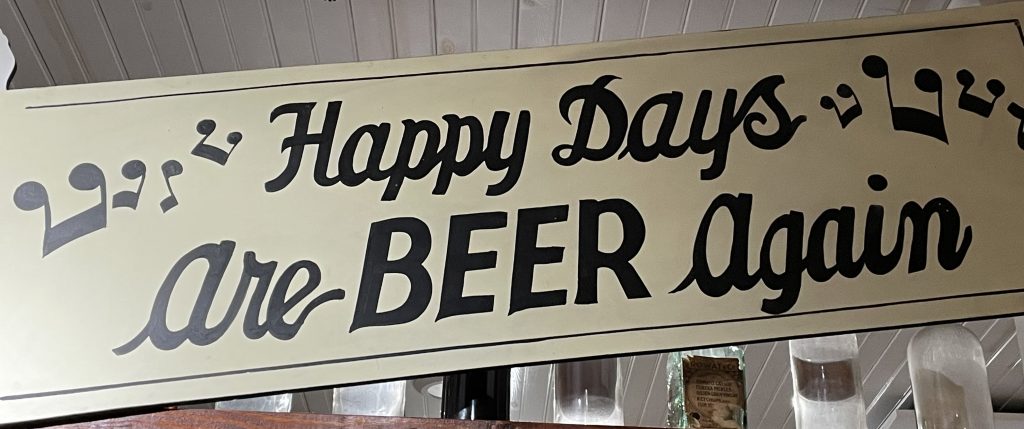There are museums around the world devoted to all kinds of unusual topics, and you can count on us visiting them whenever they pop up near our itinerary. And so when we learned about a collection devoted to one of the darkest chapters in American history, we had to check it out.
No, we’re not talking about The Trump Presidency, but an earlier sad period in the U.S. that is memorialized in the American Prohibition Museum in Savannah, Georgia.
The museum is an assortment of wax figures and tableaux that tell the history of Prohibition, interspersed with historical relics and explanatory signboards.
After many decades of efforts by teetotalling activists like Carrie Nation and the temperance movement, Prohibition officially began in 1920 when the 18th Amendment to the U.S. Constitution went into effect, banning the manufacture, transportation and sale of intoxicating liquors.
According to some historians, the decline in the amount of liquor consumed in the U.S. during the Prohibition era did cause reductions in cirrhosis death rates, admissions to state mental hospitals for alcoholic psychosis, arrests for public drunkenness, and rates of workplace absenteeism.
But Prohibition also led to major increases in bootlegging, smuggling, speakeasies, deaths from consumption of tainted alcohol, and massive growth in organized crime.
To survive Prohibition, many breweries, wineries, and distilleries turned to other efforts to remain at least partially in business.
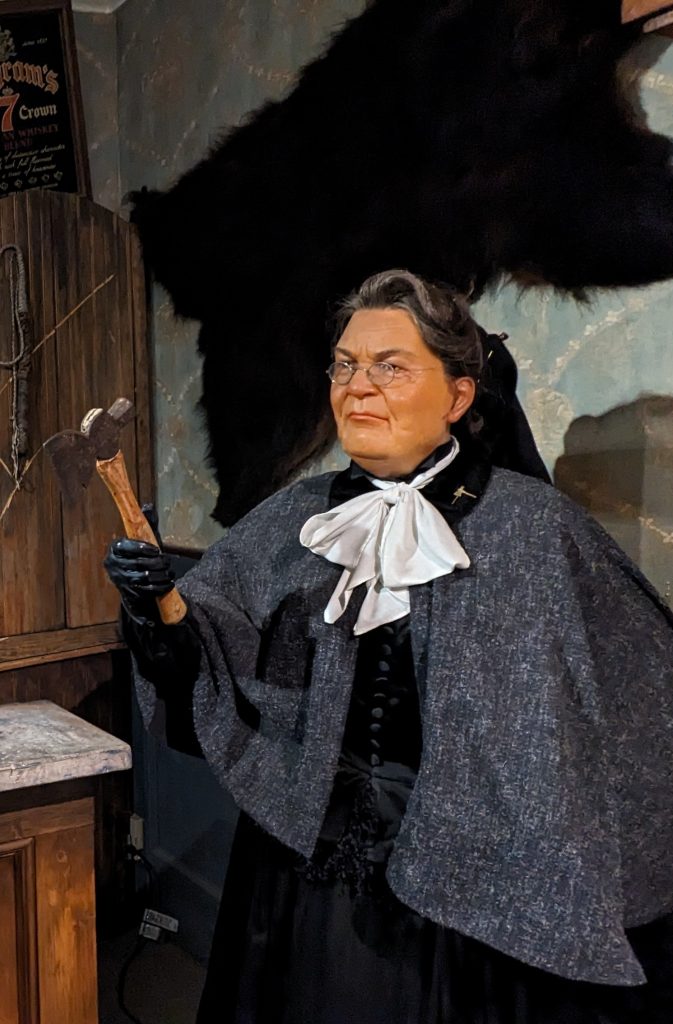
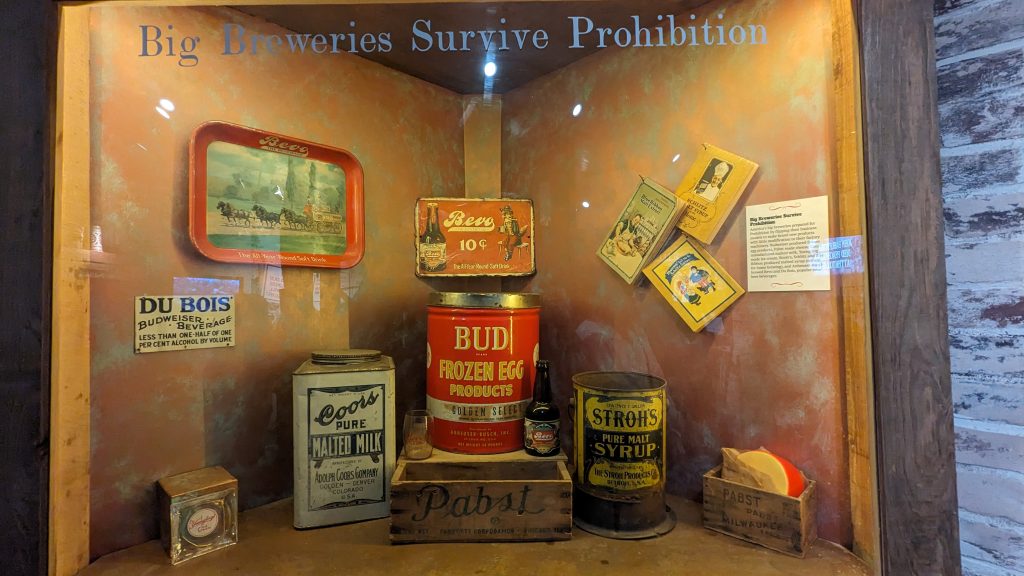
Former alcohol producers made ice cream, low- or non-alcoholic beer, powdered malted milk, breakfast beverages, and other foods during the period.
At least one enterprising business packaged freeze-dried grape concentrate which came with explicit instructions not to mix with yeast, water, and sugar and let sit in a warm place for a certain period of days, or else an illegal wine would be produced!
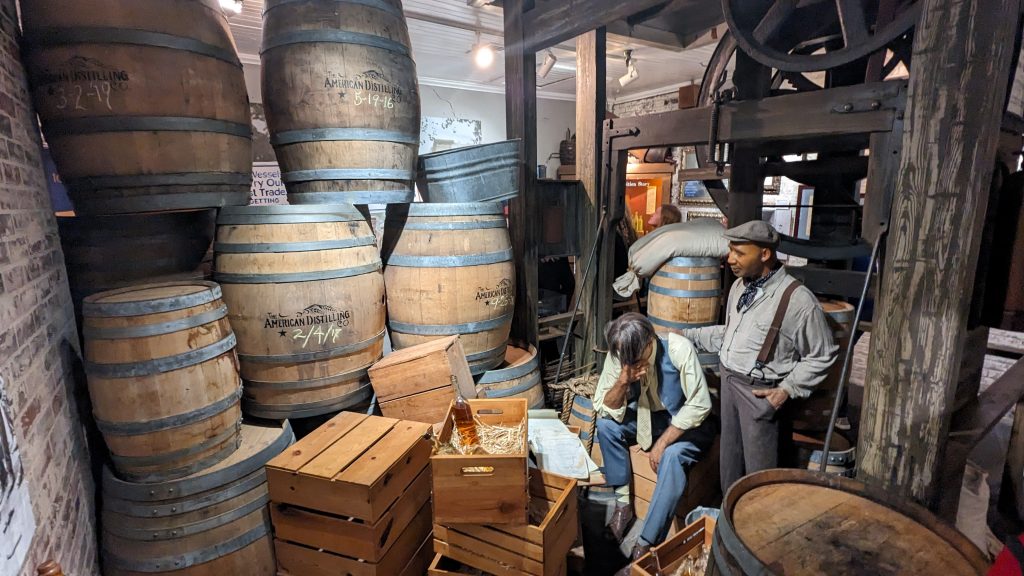
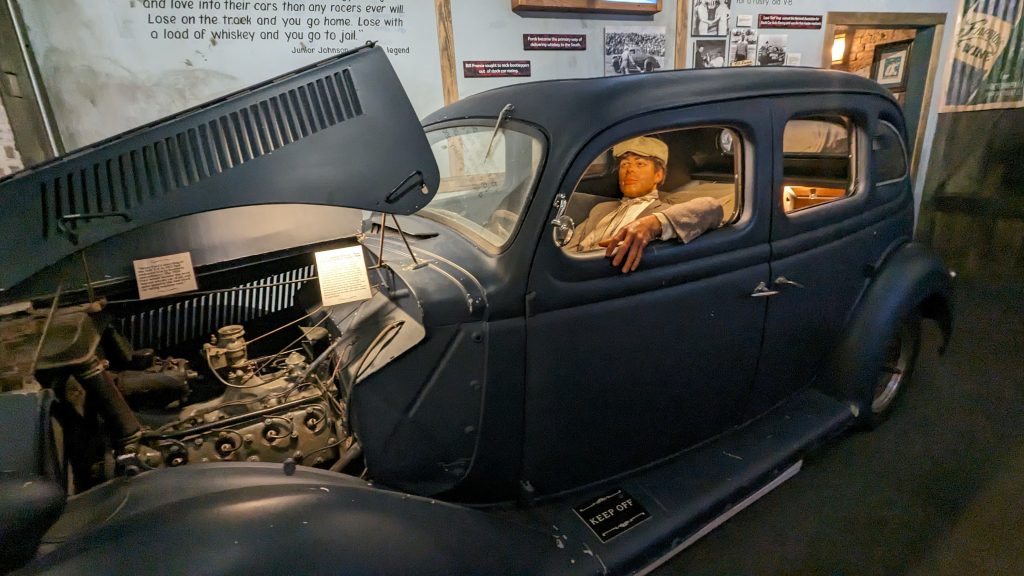
One of the final exhibits in the museum is about the drivers who delivered moonshine on country roads in souped-up cars that could successfully outrun federal agents. These drivers were among the first behind the wheels when Nascar first began, having had lots of practice in fast cards.
In early 1933, Congress adopted a resolution proposing a 21st Amendment to the Constitution that would repeal the 18th. The 21st Amendment was ratified on December 5, 1933, thus ending Prohibition.
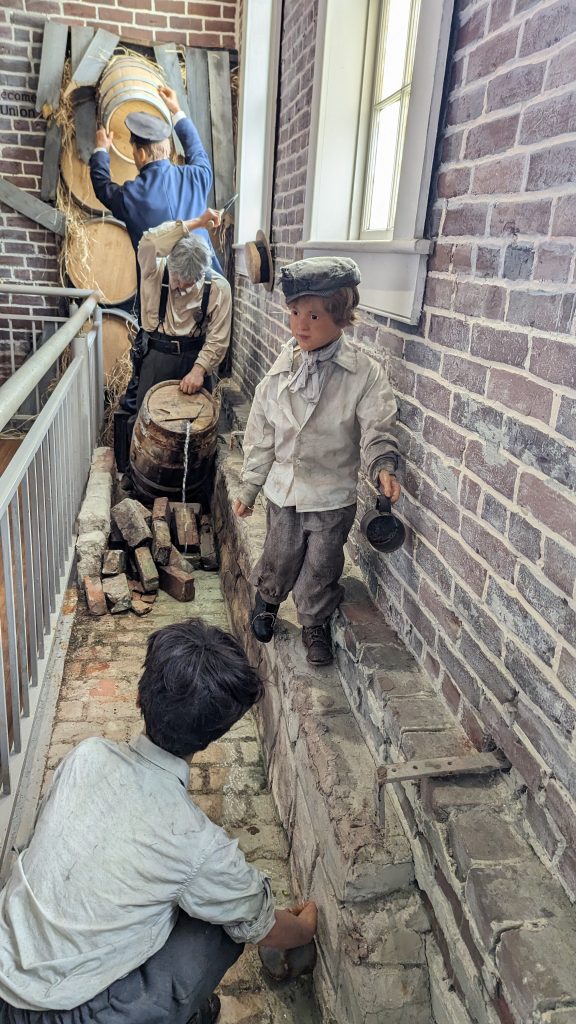
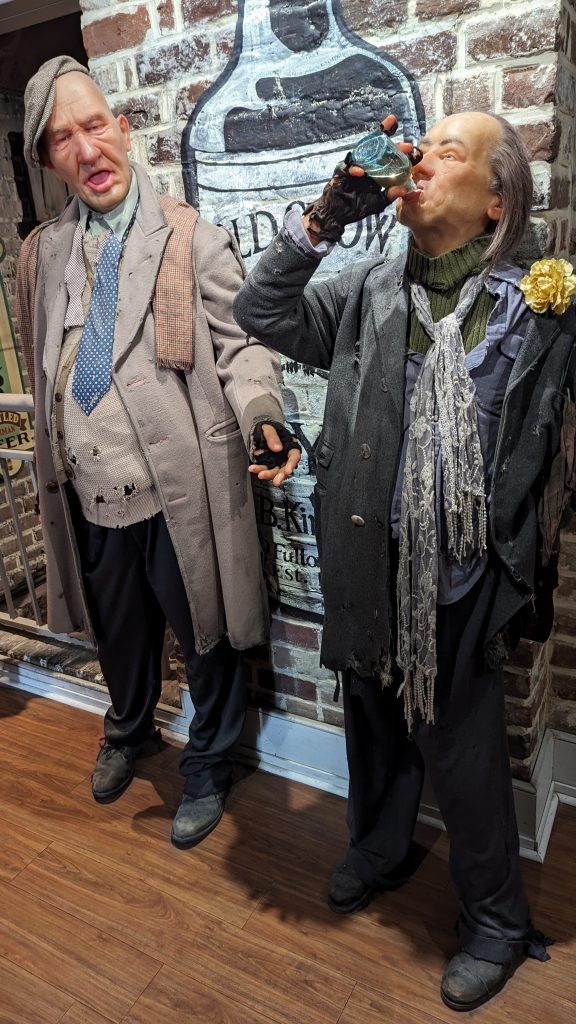
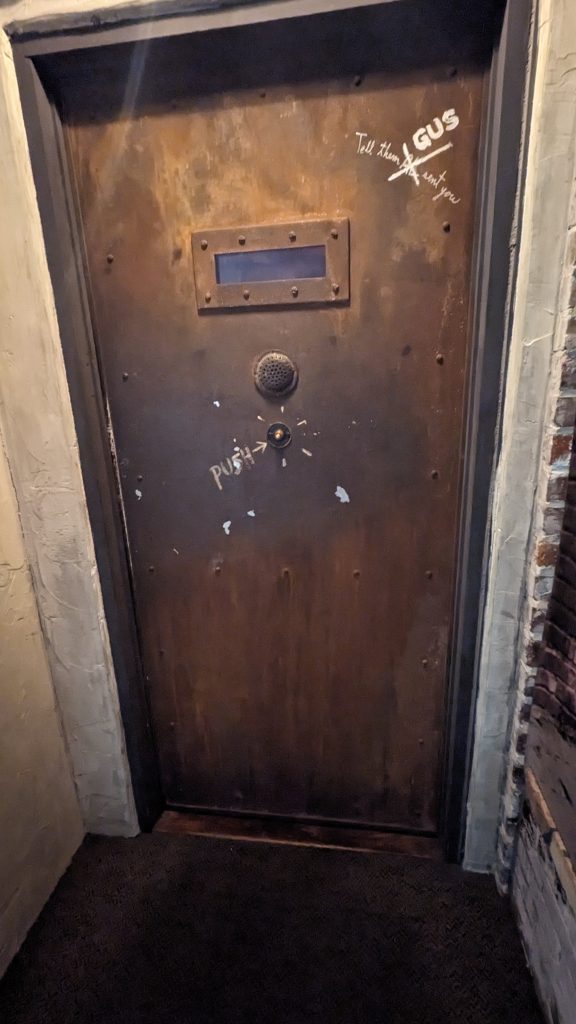
At the conclusion of the tour, visitors knock on a door and a pair of menacing eyes appear in a porthole. Whisper the password, and the door to a speakeasy opens where a vintage cocktail can be enjoyed in the lounge. I had a Brown Derby made from a throwback bourbon, and it went down smoothly.
